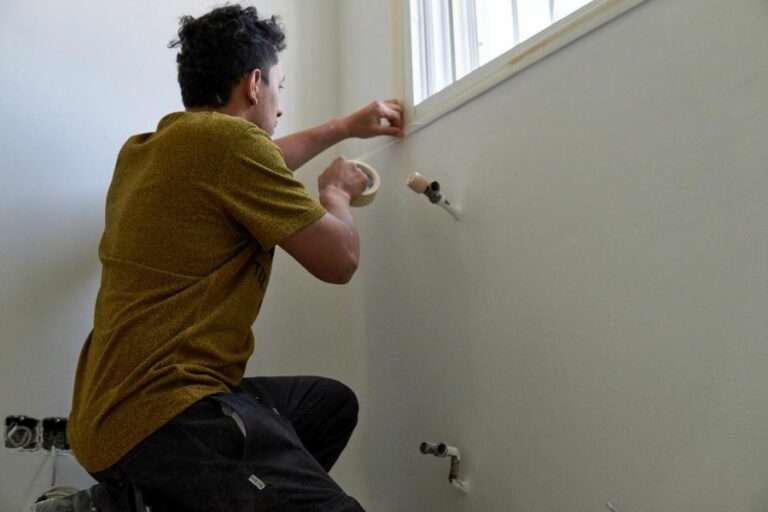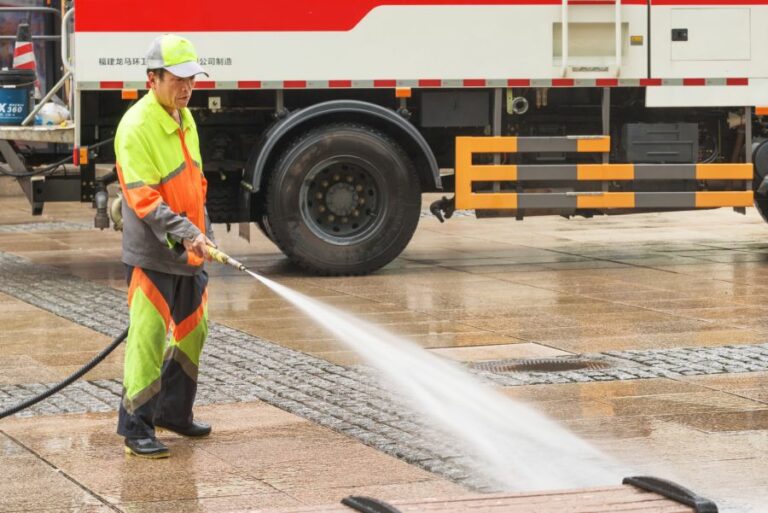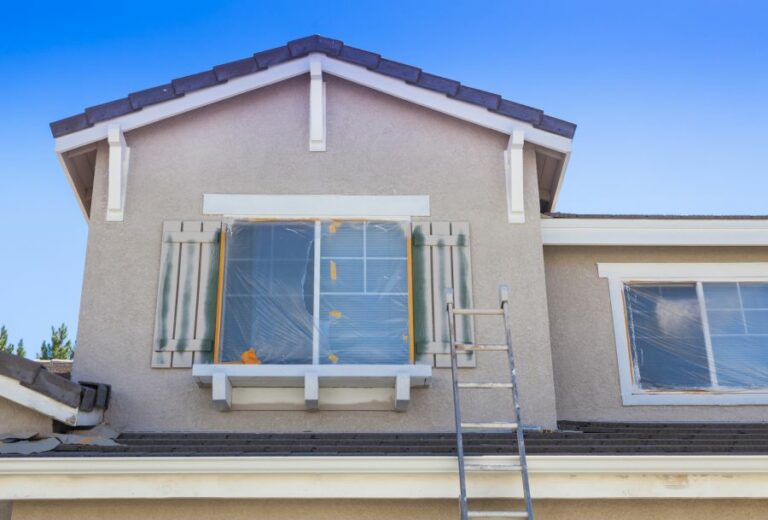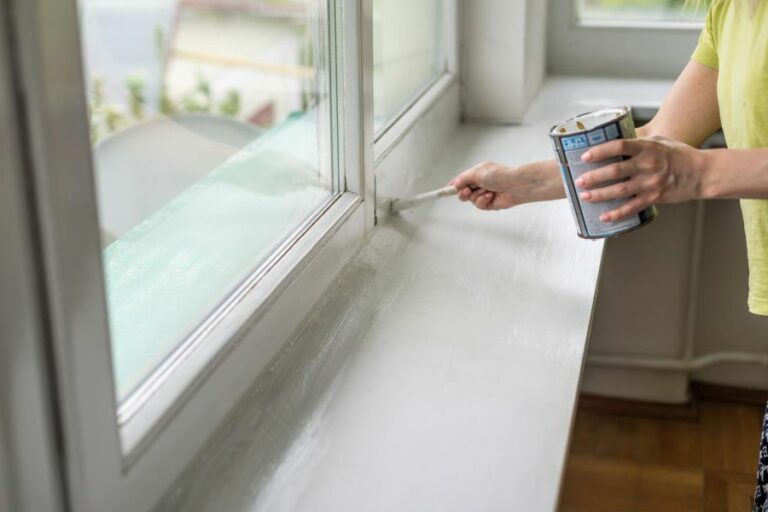Debris-Free Surfaces With Wire Brushes. What Pros Say
Are you tired of dealing with debris-filled surfaces that seem impossible to clean? We’re here to help! Wire brushes can be the perfect solution to ensure debris-free surfaces with little hassle involved.
Debris-free surfaces with wire brushes:>
Wire brushes are essential tools for achieving debris-free surfaces in industries like construction and metalworking. They come in various shapes, sizes, and materials, such as handheld, tube, wheel, cup, and end brushes. Choosing the right brush depends on the task, surface material, and desired aggressiveness. Proper maintenance and safety measures ensure longevity and effectiveness.

Discover the secret to debris-free surfaces using wire brushes! Uncover their versatility, effectiveness, and best practices for different applications. Keep reading to find the ideal wire brush solution for your home or workspace and unlock the full potential of this cleaning tool.
Contents
- 1 Achieve Spotless Surfaces Using Wire Brushes
- 2 Wire Brush: A Versatile Cleaning Solution
- 3 Find the Perfect Surface for Wire Brush Preparation
- 4 Wire Brushes and Aluminum: A Safe Choice?
- 5 Wire Brushes: Effective Dirt Removers?
Achieve Spotless Surfaces Using Wire Brushes
Maintaining a clean and debris-free surface is crucial in various industries and applications. Wire brushes are essential tools to achieve this, and they come in many shapes, sizes, and materials.
• The Importance of Debris-Free Surfaces
Debris-free surfaces are vital in many industries, such as construction, woodworking, metalworking, automotive, and painting. They ensure the quality of the finished product by removing contaminants, loose paint, rust, and other unwanted elements.
For example, OSHA states that a debris-free surface in a shipyard is necessary to prevent accidents and maintain safe working conditions.
• Types of Wire Brushes and Their Applications
There are several types of wire brushes available, each designed for a specific purpose. Choosing the right one is essential to achieve the desired results.
– Handheld Wire Brushes
These brushes are ideal for small-scale cleaning tasks, such as removing rust and paint from metal surfaces. Handheld wire brushes usually feature a wooden or plastic handle for a comfortable grip, and they can have various types of bristles, including steel, brass, and stainless steel.
– Tube Brushes
Tube brushes have a unique cylindrical shape that allows them to clean the inside of tubes, pipes, and other hard-to-reach areas. They come in various diameters and materials to accommodate different cleaning requirements.
– Wire Wheel Brushes
Wire wheel brushes are ideal for large-scale surface cleaning, deburring, and rust removal. They are typically mounted on bench grinders or angle grinders to cover vast areas quickly and efficiently. These brushes can feature crimped or knotted wire, depending on their intended use.
– Wire Cup Brushes
These brushes are shaped like cups and are usually designed for use with angle grinders. They are excellent for removing paint, rust, and other debris from large, flat surfaces.
– Wire End Brushes
Wire end brushes are small, with bristles concentrated on one end of the brush. They are perfect for cleaning and polishing tight spaces and other areas where access is limited.
• Choosing the Right Wire Brush
Selecting the right wire brush depends on the job at hand, the material to be cleaned, and the desired level of aggressiveness.
- Type of bristle material: Choose the appropriate bristle material based on the surface to be cleaned. For example, steel bristles are best for aggressive cleaning and paint removal, while brass bristles are suitable for more delicate tasks.
- Bristle shape: The shape of the bristles affects the cleaning action. Crimped wire brushes offer flexibility and are ideal for light-duty tasks, while knotted wire brushes provide aggressive cleaning action for heavy-duty applications.
- Brush size and shape: Consider the size and shape of the brush based on the area to be cleaned. Larger brushes cover more surface area, while smaller brushes offer precision and versatility.
- Attachment method: Consider the type of power tool you will use and select brushes that are compatible with it.
• Maintenance and Safety Tips for Wire Brushes
- Regular inspection: Regularly check wire brushes for wear and tear, and replace them when necessary.
- Proper storage: Store brushes in a dry and well-ventilated area to prevent rust and ensure they remain in good condition.
- Safety gear: Wear proper safety gear when using wire brushes, such as safety goggles, gloves, and ear protection.
- Use the right speed: Ensure you operate power tools at the recommended speed for the specific brush type to avoid accidents and achieve the best results.
Wire brushes are a versatile and essential tool for achieving debris-free surfaces in various industries. Choose the right brush based on the job at hand, use it safely, and maintain it well to ensure it serves you for a long time.
Wire Brush: A Versatile Cleaning Solution
A wire brush is a versatile and inexpensive tool that serves several purposes in cleaning and maintaining different surfaces.
• Removing Rust From Metals
One of the most common uses of a wire brush is removing rust from metals. A wire brush effortlessly cleans away loose rust, paint, and grime, leaving the metal surface looking new and easier to maintain.
I recommend using a stainless steel wire brush to clean rust from metals, as it is more durable and resistant to corrosion.
For more information on rust removal methods, visit the National Association of Corrosion Engineers’ website.
• Cleaning Grills and Barbecue Grates
A wire brush can effectively clean your grill or barbecue grate, removing any burnt-on food and grease. Regularly cleaning your grill or grate with a wire brush can help prevent harmful bacteria growth and improve the longevity of your cooking equipment.
I recommend using a brass wire brush for cleaning grills and barbecue grates, as its softer bristles won’t damage the surface.
• Scrubbing Floors and Concrete Surfaces
Wire brushes are perfect for scrubbing away stubborn dirt and stains from concrete, brick, and stone surfaces. The bristles’ stiffness allows you to put more pressure on the surface and reach into cracks and crevices with ease.
I recommend using a wire brush with a long handle for cleaning floors and concrete surfaces so you don’t have to bend over.
• Cleaning Garden Tools
Garden tools often get caked with dirt and grime after use. A wire brush can quickly remove dirt, rust, and dried plant material, helping keep your tools in top condition for longer periods.
I recommend using a small, handheld wire brush for cleaning garden tools.
For tips on garden tool maintenance, check out this resource provided by Purdue University.
• Prepping Wood Surfaces for Painting or Staining
A wire brush is ideal for removing old paint, varnish, and rough edges from wood surfaces before applying a new coat of paint or stain. The wire bristles effectively scrape away the old material, preparing the wood for a smooth, even finish.
I recommend using a brass or stainless steel wire brush for prepping wood surfaces to avoid damaging the wood.
• Removing Paint from Masonry
Walls, stones, or bricks that have been painted can be effectively cleaned using a wire brush. The bristles can access small cracks and crevices, removing the paint and leaving behind an even, clean surface.
I recommend using a nylon wire brush for removing paint from masonry, as it is gentler on the surface.
• Cleaning Automotive Parts
A wire brush is useful for cleaning and maintaining automotive parts such as brake calipers, battery terminals, and wheel hubs. It effectively removes dirt, grease, and grime, improving the overall performance of these components.
I recommend using a small, stainless steel wire brush when cleaning automotive parts.
For more automotive cleaning and maintenance tips, visit your local automotive center or access resources from the Department of Transportation.
• Conclusion
While a wire brush may be a simple and inexpensive tool, it is remarkably versatile and effective in cleaning various surfaces. By following expert recommendations and selecting the appropriate wire brush type, you can ensure optimal results and maintain the longevity of your items.
A wire brush is undoubtedly an indispensable addition to any cleaning or maintenance toolkit.
| You can use a Wire Brush as A Versatile Cleaning Solution for: |
|---|
| Grills and barbecue grates |
| Rust from metal surfaces |
| Paint and varnish from wood |
| Concrete and stone surfaces |
| Stuck on dirt from gardening tools |
| Industrial equipment and machinery |
| Plumbing and pipe fixtures |
| Car and motorcycle parts |
| Chimneys and fireplace components |
Find the Perfect Surface for Wire Brush Preparation
• Understanding the Wire Brush
A wire brush is a versatile tool designed for cleaning and prepping various types of surfaces. Consisting of a handle and bristles made from wire, these brushes are highly effective in removing rust, paint, and other debris.
They come in various sizes, shapes, and bristle materials like steel, brass, and stainless steel, allowing users to choose the right type for their specific surface preparation needs.
• Using Wire Brushes for Various Surface Materials
– Metal Surfaces
Wire brushes are an excellent choice for preparing metal surfaces, primarily for the removal of rust, paint, or scale. They can also be used for deburring and roughing up surfaces for better adhesion of paint or other coatings.
When preparing metal surfaces, it’s important to choose the appropriate wire brush material to avoid damage. For example, on non-ferrous metals like brass, copper, or aluminum, choose a non-abrasive brass or nylon wire brush to prevent scratching.
The American Welding Society recommends stainless steel wire brushes for stainless steel surfaces to reduce the risk of contamination by ferrous particles. For ferrous metals like iron and steel, steel wire brushes are more suitable for handling heavy rust and scale removal.
– Wood Surfaces
Wire brushes can also be effective in preparing wooden surfaces. They are suitable for removing loose paint, old varnish, or dirt from wood without causing damage.
While working on wood surfaces, you may want to use softer wire brushes, like brass or nylon, to avoid causing scratches, especially on softwood surfaces.
– Masonry and Concrete Surfaces
Wire brushes can be employed to clean and prepare masonry surfaces like brick, stone, and concrete. They can effectively remove dirt, efflorescence, or old paint. However, when working on concrete surfaces, it’s crucial to avoid over-brushing as it may cause damage or excessive roughness.
– Painted Surfaces
For removing old or peeling paint from various surfaces, wire brushes can be an invaluable tool. They can help prepare the surface for a fresh coat of paint or for other treatments. The choice of wire brush material will depend on the surface being cleaned.
Softer bristles like brass or nylon are recommended for gentle cleaning, while more aggressive bristles like steel may be suitable for rougher surfaces.
• Tips for Using Wire Brushes Effectively
– Pressure Application
When using a wire brush for surface preparation, it’s essential to apply the appropriate amount of pressure. Too much pressure may cause damage to the surface or decrease the lifespan of the wire brush. On the other hand, insufficient pressure will fail to remove the debris properly.
It’s best to start with light pressure and gradually increase it as needed.
– Brushing Direction
The direction of brushing is another crucial aspect to consider when using a wire brush. For the effective removal of debris or paint, consider brushing in a consistent direction or using a back-and-forth motion. Changing directions frequently can be less effective in surface preparation.
– Safety Precautions
It’s important to take necessary safety precautions while using wire brushes, as the bristles can dislodge and cause injury. Always wear safety goggles, gloves, and appropriate clothing to avoid injuries.
Additionally, ensure that the work area is well-ventilated, especially when working with chemical treatments or paint.
• Wire Brush Maintenance
Proper care and maintenance of your wire brush will prolong its life and keep it working effectively. Remove any debris attached to the bristles after each use by tapping the brush against a hard surface or using a comb-like tool. Store the brush in a dry, cool area away from moisture, heat, or direct sunlight.
• Conclusion
A wire brush is an indispensable tool when it comes to surface preparation. Depending on the surface material and the extent of cleaning required, you can choose from a variety of wire brush options.
Follow the tips and recommendations provided in this article to ensure that your surface preparation process is effective, efficient, and safe.
Questions | Answers |
|---|---|
What type of surface is a wire brush the ideal tool for prepping? | A wire brush is an ideal tool for prepping surfaces like metal, concrete, and wood, especially to remove rust, paint, and other debris. |
Wire Brushes and Aluminum: A Safe Choice?
• Understanding Aluminum Surfaces
Aluminum, as a lightweight and corrosion-resistant metal, is widely used in various industries, from automotive and aerospace to construction and consumer goods. However, in order to harness its natural properties, proper care and maintenance are necessary, especially when it comes to cleaning.
One common question that arises is whether it is safe to use a wire brush on aluminum surfaces. The short answer is: it depends on the type of wire brush and your cleaning objectives.
– Characteristics of Aluminum
Aluminum is highly susceptible to scratches and abrasion due to its relatively soft surface. Additionally, aluminum develops a thin layer of protective oxide which can help prevent corrosion. This oxide layer, however, can be easily scratched or compromised, exposing the underlying metal to potential damage.
• Choosing the Right Wire Brush
With aluminum’s characteristics in mind, it is crucial to choose the right wire brush for the job. Wire brushes typically come in three main types: brass, stainless steel, and carbon steel.
– Brass Wire Brushes
Brass wire brushes are the gentlest option when it comes to cleaning aluminum surfaces. Being a soft metal, brass is less likely to scratch or damage aluminum, making it the most suitable choice for most applications.
These brushes can be used to remove surface dirt, light rust, and paint without causing significant harm to the aluminum.
– Stainless Steel Wire Brushes
Stainless steel wire brushes are more rigid and abrasive than brass brushes. While they can be effective in removing stubborn contaminants, they also increase the risk of leaving scratches on the aluminum surface.
It is not recommended to use stainless steel wire brushes on aluminum unless absolutely necessary, such as when dealing with heavy corrosion or substantial paint build-up. If you must use a stainless steel brush, apply light pressure and work carefully to minimize surface damage.
– Carbon Steel Wire Brushes
Carbon steel wire brushes are the most abrasive and aggressive option and should generally be avoided when cleaning aluminum surfaces.
Using a carbon steel brush on aluminum can create deep scratches, compromise the natural oxide layer, and even cause a chemical reaction, known as galvanic corrosion, between the two metals. This galvanic corrosion can lead to accelerated deterioration of the aluminum surface.
• Tips for Using Wire Brushes on Aluminum
Here are some recommendations when using wire brushes to clean aluminum surfaces:
– Test the Brush on an Inconspicuous Area
Before using a wire brush on your aluminum piece, test it on an inconspicuous area to gauge its abrasiveness and potential for causing damage. If noticeable scratches or other damage occurs, opt for a gentler cleaning method.
– Use a Gentle, Side-to-Side Motion
When using a wire brush, move it gently in a side-to-side motion rather than pushing it down onto the aluminum. This will help minimize the pressure and reduce the likelihood of scratches.
– Combine with Non-Abrasive Cleaners
For light cleaning tasks, consider using non-abrasive cleaners in combination with a brass wire brush. This can help loosen and remove dirt and grime without the need for aggressive scrubbing.
– Regular Maintenance
Proper maintenance and cleaning can prevent the need for aggressive cleaning methods. By regularly wiping down and inspecting your aluminum surfaces, you can avoid the build-up of contaminants that could necessitate the use of a wire brush.
• Final Thoughts
In conclusion, using a wire brush on aluminum can be acceptable, provided the appropriate care and consideration are taken in choosing and using the correct wire brush. A brass wire brush is the most appropriate choice, offering effective cleaning with the least risk of damage.
Stainless steel brushes should be used with caution, while carbon steel brushes should be avoided. Regular maintenance and cleaning can help prevent the need for aggressive cleaning methods in the first place.
Wire Brushes: Effective Dirt Removers?
A wire brush is a versatile and effective tool commonly used in various industries and households for cleaning purposes. But can a wire brush remove dirt effectively? The answer is yes. A wire brush can efficiently eliminate dirt, grime, and other unwanted substances from various surfaces.
• Types of Wire Brushes
Different types of wire brushes cater to specific cleaning tasks. It is crucial to use the right kind to achieve the desired cleaning effect.
– Brass Wire Brushes
Brass wire brushes are suitable for use on softer surfaces, as they have relatively softer bristles. They are most commonly used for the cleaning of brass, copper, and other non-ferrous metals. Brass brushes are also suitable for removing dirt from delicate surfaces, such as automotive engines.
– Stainless Steel Wire Brushes
Stainless steel wire brushes are more robust and more appropriate for heavier tasks. They are suitable for use on steel, iron, and other hard surfaces. They can remove rust, paint, and other tough coatings, in addition to dirt, very efficiently.
– Nylon Wire Brushes
Nylon wire brushes are the most gentle type, making them ideal for cleaning soft surfaces like plastics, fabrics, and upholstery. They are also useful for surfaces that may scratch easily.
• Effectiveness of Wire Brushes in Removing Dirt
Wire brushes, when used correctly, can remove dirt from various surfaces effectively. The bristles penetrate deep into surface crevices, pulling out dirt particles and dislodging them. However, the effectiveness of a wire brush in removing dirt may depend on the following factors:
- Type of wire brush used
- Nature of the surface being cleaned
- A technique used to clean the surface
Here are some common situations where a wire brush can effectively remove dirt:
- Cleaning metal surfaces: A stainless steel wire brush can efficiently remove dirt, rust, and other debris from the metal surface.
- Removing dirt from concrete: Wire brushes can dislodge dirt and debris from cracks and crevices in concrete surfaces. Brass wire brushes are more appropriate for cleaning concrete surfaces, as they will not damage the surface.
- Ground-in dirt on carpets and fabrics: Nylon wire brushes can efficiently remove ground-in dirt from carpets, upholstery, and other fabrics without damaging the surface.
• How to Use a Wire Brush to Remove Dirt
To remove dirt effectively with a wire brush, follow these steps:
- Choose the appropriate wire brush: Select a wire brush based on the type of surface you will be cleaning. Brass brushes are suitable for softer surfaces, stainless steel brushes for harder surfaces, and nylon brushes for delicate surfaces.
- Remove loose dirt or debris: Before using the wire brush, eliminate loose dirt and debris from the surface to avoid scratching it further.
- Apply the right pressure: Too much pressure may damage the surface, whereas too little pressure may not deliver the desired cleaning effect. Moderate pressure is recommended.
- Clean the surface: Hold the wire brush at a suitable angle, then move it in a back-and-forth motion while applying light to moderate pressure, depending on the surface you are cleaning.
- Rinse the surface: After cleaning, rinse the surface with water to remove any remaining dirt or debris.
• Safety Measures While Using Wire Brushes
It is essential to follow safety measures while using wire brushes to avoid personal injury. Some necessary precautions include:
- Wear protective gloves: Wearing appropriate gloves can help prevent injury or irritation from the bristles.
- Use eye protection: Flying debris or dirt particles can damage eyes; using proper eye protection, such as goggles, is essential.
- Keep the work area clean: Regularly clean the work area to minimize dirt and debris that could lead to accidents while using a wire brush.
In conclusion, wire brushes can be an effective tool in removing dirt from various surfaces when used correctly and with the proper technique. Choosing the right type of wire brush and following safety precautions are essential for achieving the desired cleaning results without causing damage or injury.







